How to Run a Music Class for Your Little One
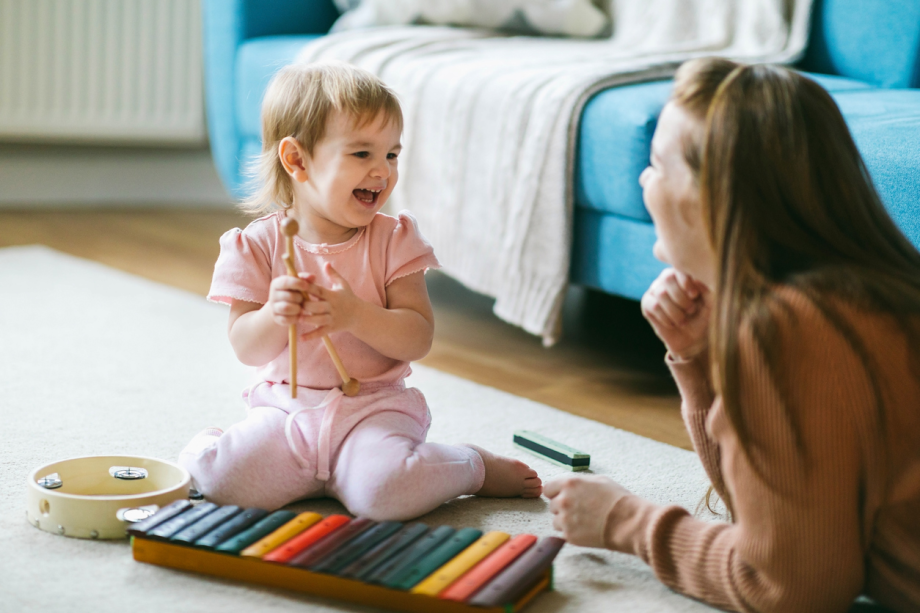
Exposing your little one to music has more benefits than you may realize. While you may sing lullabies to get them to sleep, there are dozens of other ways you can get your baby on board the music train. By instilling a love of music in your baby early on, you’re planting a seed that will grow for years to come as they reap the rewards.
You don’t have to be a professional musician to make this happen. There are simple things you can do at home to run a baby music class for your little one. All it takes is a little time and creativity! We’re going to share some ideas with you on how to run your own baby music class and shed some light into why exploring music is such an important aspect of your child’s development.
Why Music is Important in a Child's Development
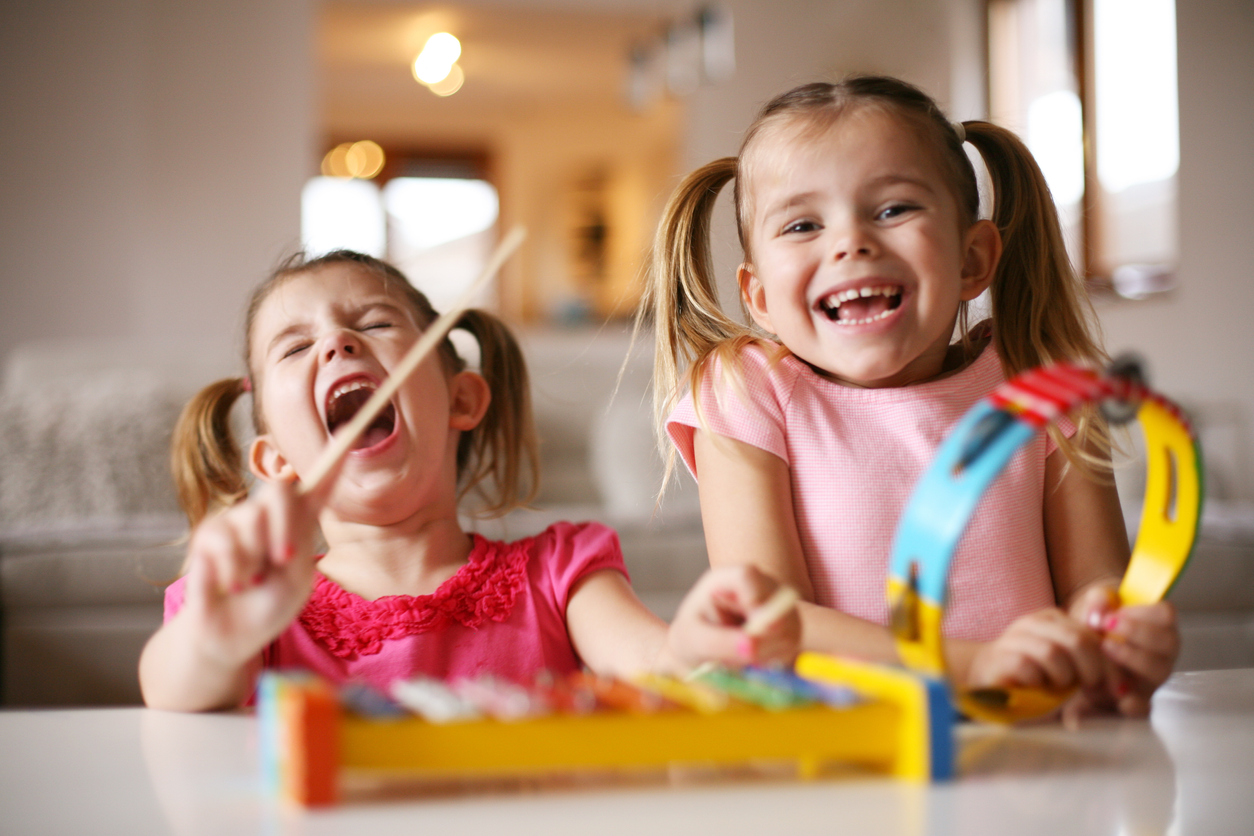
It Promotes Better Reading Skills
For starters, a 2016 at the University of Southern California’s Brain and Creativity Institute discovered that exploring music in childhood can accelerate brain development when it comes to language and being ready for school.
Music may also expose a child to challenges and multi-sensory experiences that can enhance their learning and their cognitive development.
It Enhances Brain Development
A study from the Institute of Learning and Brain Sciences found that after babies were exposed to musical sounds, there were changes that took place in their auditory and prefrontal cortexes. These are two parts of the brain that are in charge of music and speech.
Researchers have found that making music is even more powerful, because it requires fine motor skills as well as mathematical and linguistic skills that make the brain work hard in several different areas. It helps to develop the bridge between the two hemispheres of the brain, which allows messages to transfer across different brain pathways faster.
Music can also help to develop spatial intelligence which can create a path for an interest in mathematics, engineering, computer science, and architecture.
It Stimulates Brain Chemicals
Exposure to music can stimulate the formation of brain chemicals such as dopamine and oxytocin. When these are released, young children are encouraged to engage in social activities that require trust, such as sharing toys.
Music has also been found helpful in terms of development when it comes to boosting concentration skills, improving vocabulary and language skills, and increasing creativity.
What Can Babies Hear at Different Stages in Their Development
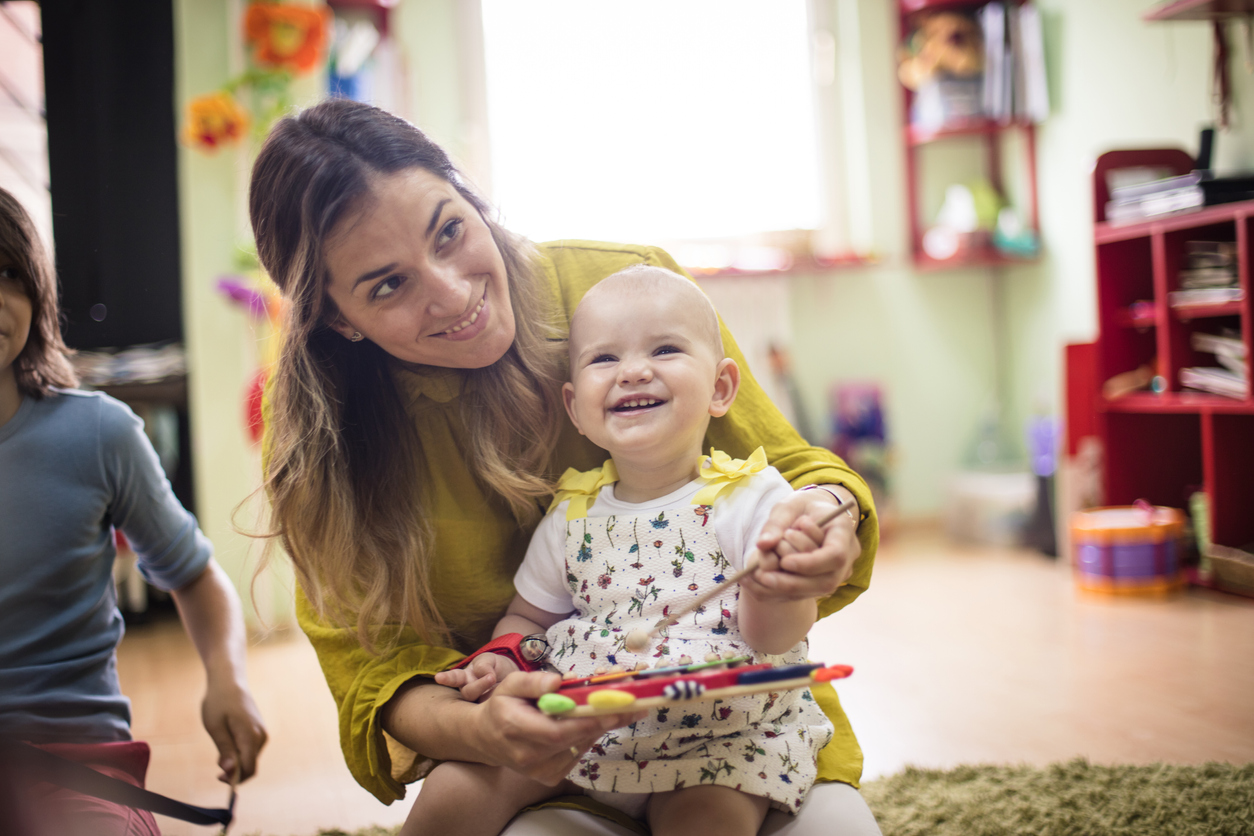
As you think of ways to introduce music into your little one’s life, it’s good to know what babies can hear and process at different stages in their development.
Experts from Stanford Children’s Health offer this helpful information:
From Birth to 3 Months:
- Babies can react to loud sounds with a startle reflex
- Babies are soothed and quieted by soft sounds
- Babies can recognize your voice and quiet down if crying
From 4 Months to 6 Months, Babies:
- Can look or turn toward a new sound
- Enjoy playing with rattles and other toys that make sounds
- Begin to repeat sounds (such as ‘ooh,’ ‘aah,’ and ‘ba-ba’)
From 7 to 12 Months, babies:
- • Enjoy games such as peek-a-boo and pat-a-cake
- Imitate simple words and sounds and may use a few single words meaningfully
- Look at objects or pictures when someone talks about them
Understanding these little milestones will help you on your journey to creating music together and setting up your own little baby music session right at home.
How to Create an At-Home Music Class
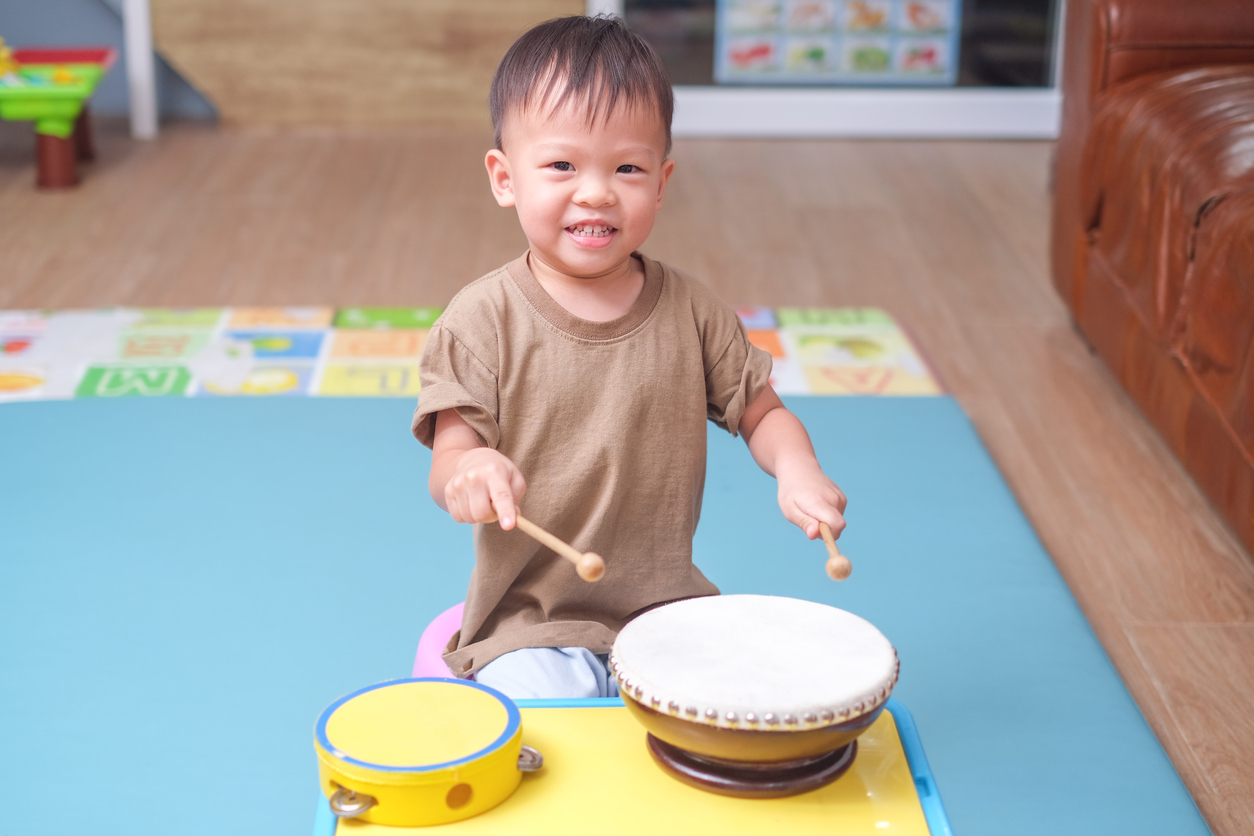
For new parents who are looking to create fun music-making memories at home, there are many easy things you can do. These include:
1. Singing to Your Baby
This is something you can do from day one. Be sure to exaggerate your facial expressions and the pronunciation of each word. Newborns will find this especially interesting.
As your baby gets older, you can incorporate bells or other noise makers as you find new songs to sing. Following the guide above as to what babies can hear and understand can help you find appropriate songs to sing and what to add in musical play for older children.
2. Making Home-Made Instruments
You can make everything from a tambourine to shakers right at home. Helpful online videos like this one show you how something as simple as a plastic bowl can help to create music. You can even make shakers from simple household items like empty bottles to create these music makers, and as a plus, they make beautiful keepsakes that you can pull out and show your baby when they grow up!
3. Clapping, Tapping, and Stomping
Babies will receive joy from simple activities like clapping and tapping. Incorporate rhythms so that they can begin to notice a pattern. Encourage caregivers to do the same so that babies are exposed to music even when you’re not around.
4. Playing Music and Dancing
Even playing music for your baby and dancing along is a helpful way of exposing them to music. You may be surprised at the moves your baby pulls out once they begin to respond to certain sounds! It’s great for physical development.
5. Playing Musical Instruments
If you have a musical instrument at home that you can play for your baby, that's great! If not, do some crowdsourcing and see if there is one you may be able to borrow. Exposing babies to musical activities that involve musical instruments is also important for their development.
One great way to get them involved with musical instruments once they can grab hold of things is to give them a pot and pan so they can practice drumming. While they may not even realize they are playing a ‘musical instrument’, it’s a great way to get them to become interactive learners.
Another cool idea is to create a ‘baby guitar’. Take a baking pan and string elastic bands across for the guitar ‘strings’. As your baby attempts to pluck on the strings with their little fingers, they will get a feel for the strumming of a guitar.
6. Inviting Friends Over for a Class
You can create a baby band by inviting friends with little ones over for a “jam session”. Give each baby a music maker and have a blast exploring all the possibilities!
Final Thoughts
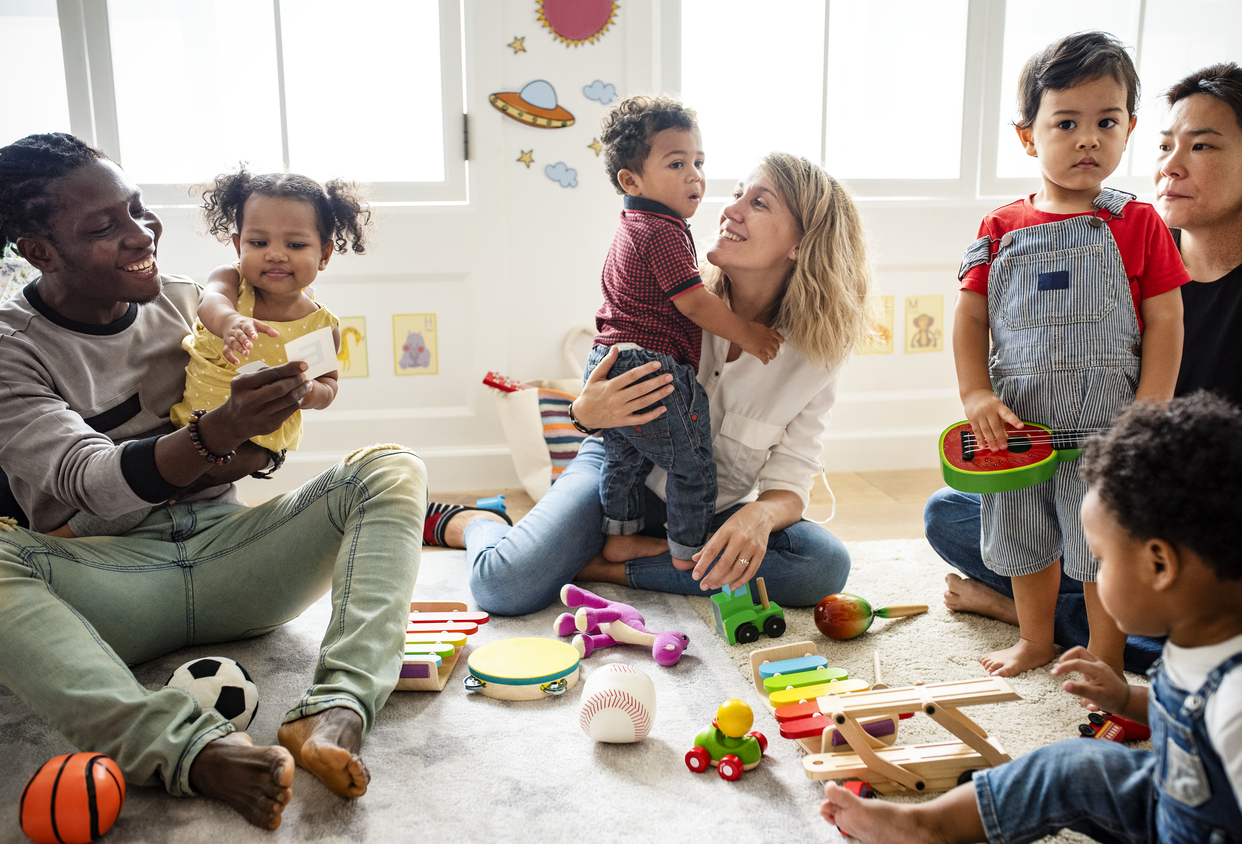
When it comes to creating a music class for your little one, you don’t have to get fancy. Babies don’t need much to be stimulated and entertained. The benefits are overwhelming and ones they will carry with them throughout their lives. Keep Calm and Music On Mama!

